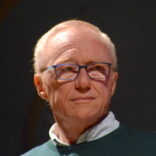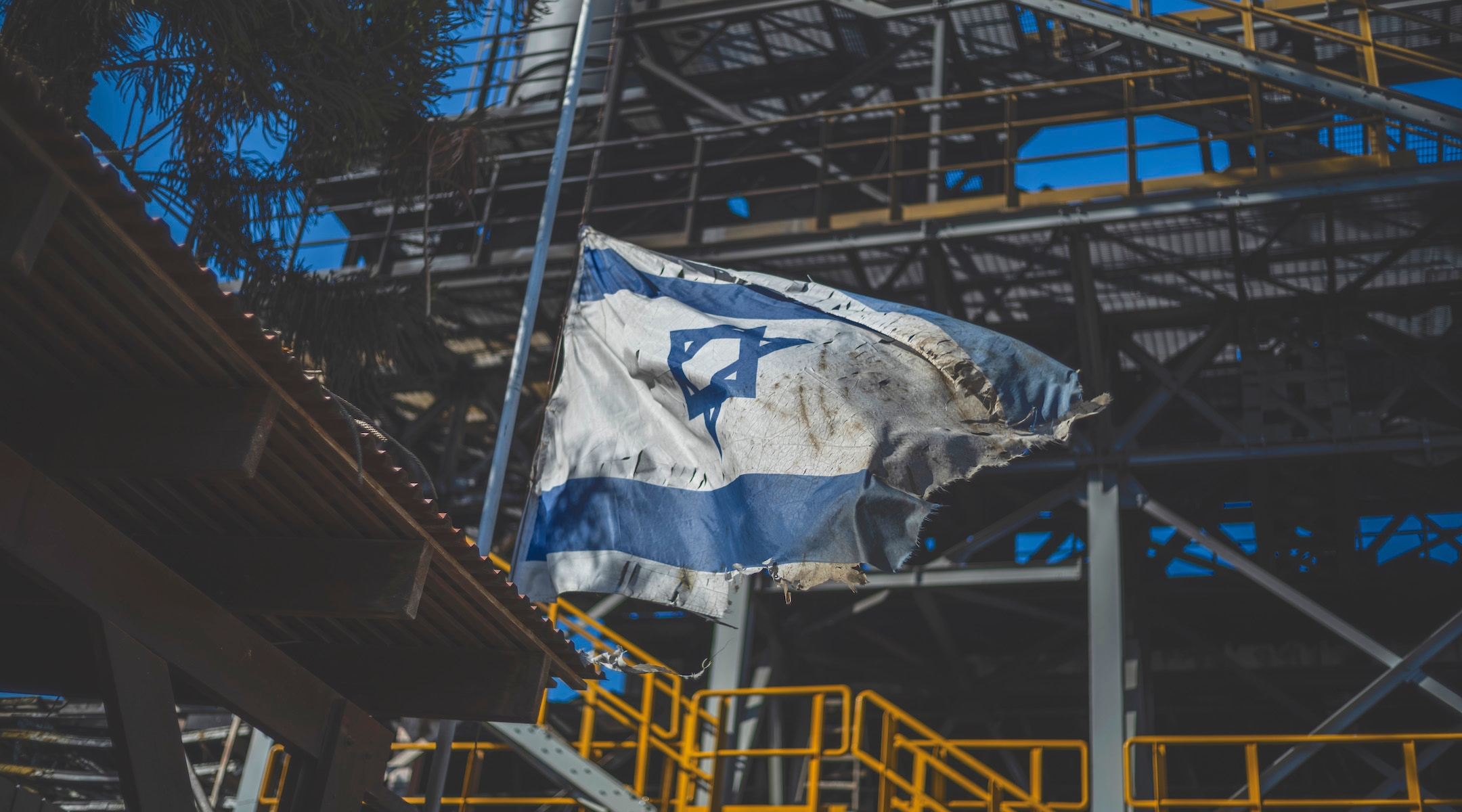(JTA) — Some 1,000 killed, more than 3,000 injured, scores of people taken hostage. Every survivor is a miraculous story of resourcefulness and bravery. Countless miracles, countless acts of heroism and sacrifice by soldiers and civilians.
I look at people’s faces and see shock. Numbness. Our hearts are weighed down by constant burden. Over and over again we say to each other: it’s a nightmare. A nightmare beyond comparison. No words to describe it. No words to contain it.
I also see a deep sense of betrayal. The betrayal of citizens by their government — by the prime minister and his destructive coalition. A betrayal of all we hold precious as citizens, and in particular as citizens of this state. A betrayal of its formative, and binding, idea. Of the most precious deposit of all — the Jewish people’s national home — which has been handed to its leaders to safeguard, and which they should have treated with reverence. But instead, what have we seen? What have we grown accustomed to seeing, as though it were inevitable? What we’ve seen is the utter abandonment of the state in favor of petty, greedy agendas and cynical, narrow-minded, delirious politics.
What is happening now is the concrete price Israel is paying for having been seduced for years by a corrupt leadership which drove it downhill from bad to worse; which eroded its institutions of law and justice, its military, its education system; which was willing to place it in existential danger in order to keep its prime minister out of prison.
Just think now of what we collaborated with for years. Think of all the energy, thought and money we wasted on watching Netanyahu and his family play out their Ceaușescu-style dramas. Think of the grotesque illusions they produced for our disbelieving eyes.
In the past nine months, millions of Israelis took to the streets every week to protest against the government and the man at its head. It was a movement of huge significance, an attempt to get Israel back on course, back to the lofty notion at the roots of its existence: creating a home for the Jewish people. And not just any home. Millions of Israelis wanted to build a liberal, democratic, peace-loving state that respects the faith of all people. But instead of listening to what the protest movement had to offer, Netanyahu chose to discredit it, to depict it as traitorous, to incite against it, to deepen the hatred among its factors. Yet he took every opportunity to declare how powerful Israel was, how determined, and above all — how well-prepared it was to face any threat.
Tell that to the parents driven mad with grief, to the baby thrown on the side of the road. Tell that to the hostages. Tell that to the people who voted for you. Tell it to the 80 breaches in the most advanced border fence in the world.
But make no mistake, and do not be confused: With all the fury at Netanyahu and his people and his policies, the horror of these past few days was not caused by Israel. It was effected by Hamas. The occupation is a crime, but to shoot hundreds of civilians — children and parents, elderly and sick in cold blood — that is a worse crime. Even in the hierarchy of evil, there is a “ranking.” There is a scale of severity that common sense and natural instincts can identify. And when you see the killing fields of the music festival site, when you see Hamas terrorists on motorcycles chasing young partiers, some of whom are still dancing without realizing what’s going on …
I do not know whether Hamas operatives should be called “animals,” but they have undoubtedly lost their humanity.
We move through these nights and days like sleepwalkers. Trying to resist the temptation to watch the horrific clips and listen to the rumors. Feeling the fear seep in among those who, for the first time in 50 years — since the Yom Kippur war — are experiencing the terrifying prospect of defeat.
Who will we be when we rise from the ashes and re-enter our lives? When we viscerally feel the pain of author Haim Gouri’s words, written during the 1948 Arab-Israeli war, “How numerous are those no longer with us.” Who will we be and what kind of human beings will we be after seeing what we’ve seen? Where will we start after the destruction and loss of so many things we believed in and trusted?
If I may hazard a guess: Israel after the war will be much more right-wing, militant, and racist. The war forced on it will have cemented the most extreme, hateful stereotypes and prejudices that frame — and will continue to frame all the more robustly — Israeli identity. And that identity will from now on also embody the trauma of October 2023, as well as the polarization, the internal rift.
Is it possible that what was lost — or indefinitely suspended — on Oct. 7 was the minuscule chance for real dialogue, for each nation’s true acceptance of the other’s existence? And what do those who brandished the absurd notion of a “binational state” say now? Israel and Palestine, two nations distorted and corrupted by endless war, cannot even be cousins to each other — does anyone still believe they can be conjoined twins? Many warless years will have to pass before acceptance and healing can even be considered. In the meantime, we can only imagine the magnitude of fear and hatred that will now rise to the surface. I hope, I pray, that there will be Palestinians on the West Bank who, despite their hatred of Israel — their occupier — will set themselves apart, whether through action or words, from what their compatriots have done. As an Israeli, I have no right to preach to them or tell them what to do. But as a human being, I have a right — and an obligation — to demand of them humane and moral conduct.
Towards the end of last month, the leaders of the United States, Israel and Saudi Arabia spoke enthusiastically of a peace accord between Israel and the Saudis, which would build on Israel’s normalization agreements with Morocco and the United Arab Emirates. The Palestinians are barely present in these agreements. Netanyahu, arrogant and exuding self-confidence, managed — in his words — to sever the connection between the Palestinian problem and Israel’s relations with Arab states. The Israeli-Saudi accord is not unrelated to the events of “Black Saturday” between Gaza and Israel. The peace it would have created is a peace of the wealthy. It is an attempt to skip over the heart of the conflict. These past few days have proved that it is impossible to begin resolving the Middle Eastern tragedy without offering a solution that alleviates the Palestinians’ suffering.
Are we capable of shaking off the well-worn formulas and understanding that what has occurred here is too immense and too terrible to be viewed through stale paradigms? Even Israel’s conduct and its crimes in the occupied territories for 56 years cannot justify or soften what has been laid bare: the depth of hatred towards Israel, the painful understanding that we Israelis will always have to live here in heightened alertness and constant preparedness for war. In an unceasing effort to be both Athens and Sparta at once. And a fundamental doubt that we might ever be able to lead a normal, free life, unfettered by threats and anxieties. A stable, secure life. A life that is home.
This article originally ran in the Financial Times, and appears here courtesy of the author. Translated by Jessica Cohen.
JTA has documented Jewish history in real-time for over a century. Keep our journalism strong by joining us in supporting independent, award-winning reporting.







